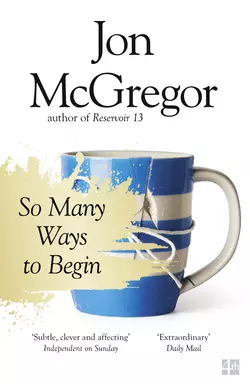So Many Ways to Begin

Jon McGregor
Тип: электронная книга
Жанр: Современная зарубежная литература
Язык: на английском языке
Стоимость: 463.36 ₽
Статус: В продаже
Издательство: HarperCollins
Дата публикации: 16.04.2024
Отзывы: Пока нет Добавить отзыв
О книге: LONGLISTED FOR THE MAN BOOKER PRIZEDavid Carter cannot help but wish for more: that his wife Eleanor would be the sparkling girl he once found so irresistible; that his job as a museum curator could live up to the promise it once held; that his daughter′s arrival could have brought him closer to Eleanor. But a few careless words spoken by his mother′s friend have left David restless with the knowledge that his whole life has been constructed around a lie.